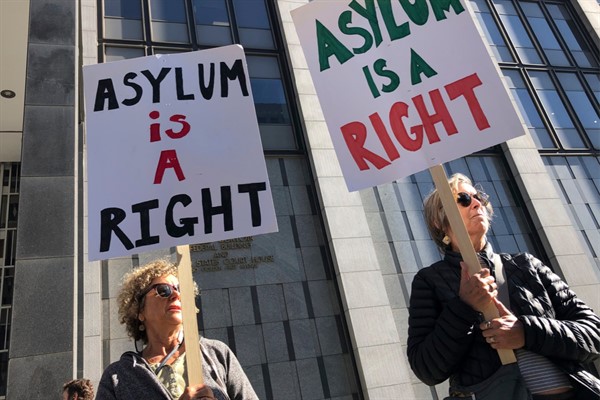According to article 14 of the 1948 Universal Declaration of Human Rights, “Everyone has the right to seek and to enjoy in other countries asylum from persecution.” But that promise, which was enshrined three years later in the 1951 Refugee Convention, has never been completely honored. In fact, it has been progressively eroded in recent years across the Global North, even as the numbers of refugees and asylum-seekers around the world have swelled.
Just last month, the Parliament of Denmark passed a law allowing it to relocate asylum-seekers outside Europe while their claims are being processed. A similar measure is under consideration in the United Kingdom, while Australia has long maintained such a policy. Here in the United States, former President Donald Trump’s administration enacted a policy known as “Remain in Mexico,” under which asylum-seekers were forced to wait across the border in Mexico, often in unsafe environments, while their claims were processed.
Today on Trend Lines, Khalid Koser, executive director of the Global Community Engagement and Resilience Fund, joins WPR’s Elliot Waldman to discuss the past, present and potential future of the right to asylum, and what it might take to revive this critical component of the international legal system. If you would like to request a full transcript of the episode, please send an email to podcast@worldpoliticsreview.com. Click here to read a partial transcript of the interview.
Listen:
Download: MP3
Relevant Articles on WPR:
Has the World Learned the Lessons of the 2015 Refugee Crisis?
African Migration to Europe Is a Lifeline, not a Threat
Biden’s Immigration Imperatives
Refugees Are Being Ignored Amid the COVID-19 Crisis
Trend Lines is edited by Peter Dörrie, a freelance journalist and analyst focusing on security and resource politics in Africa. You can follow him on Twitter at @peterdoerrie.
To send feedback or questions, email us at podcast@worldpoliticsreview.com.




